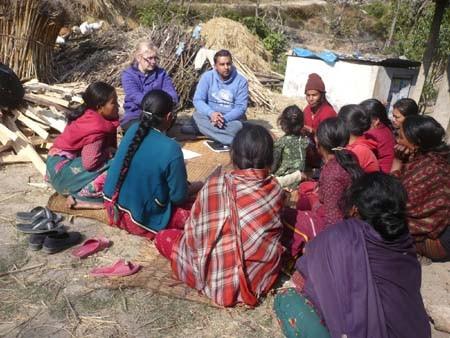Om's Food Hygiene Intervention - February 2013

27 Feb 2013
Learning from the expert
This month, I received a visit from my PhD supervisor, Dr Val Curtis, so that she could review my work in Nepal to date and provide her expert input regarding the food hygiene intervention package and the field site for my trial. This is what we got up to:
- The first appointment in Val’s visit was a one-day intensive workshop with the creative team who had been working on the food hygiene promotion package. Val gave valuable feedback on the prototype intervention, which will help us to shape final package.
- The next day, Val and I visited the field site which is 45km east of Kathmandu valley. Together we visited two villages, where Val spoke with several households and participated in discussions with mothers of young children. We also met with project coordination committee members and Female Community Health Volunteers who will be key to the role-out of the food hygiene intervention package.
- The following day, Val provided her feedback on the prototype food hygiene intervention package based on her field visit observation. After discussions we decided to position the campaign using the concept of an ‘ideal mother’. Val and I also visited the laboratory which will be conducting the microbiological testing for my study. That evening, we were invited to an evening reception organised by WaterAid Nepal during which Val gave a presentation on global and regional perspectives on hygiene, handwashing and behaviour change. The reception was attended by representatives from the WASH, Health and Nutrition sectors as well as the private sector.
- On the last day of Val’s visit, we planned next steps for my study such as the baseline survey and randomization process before Val boarded the plane back to the UK.
Check back soon for my next update!
